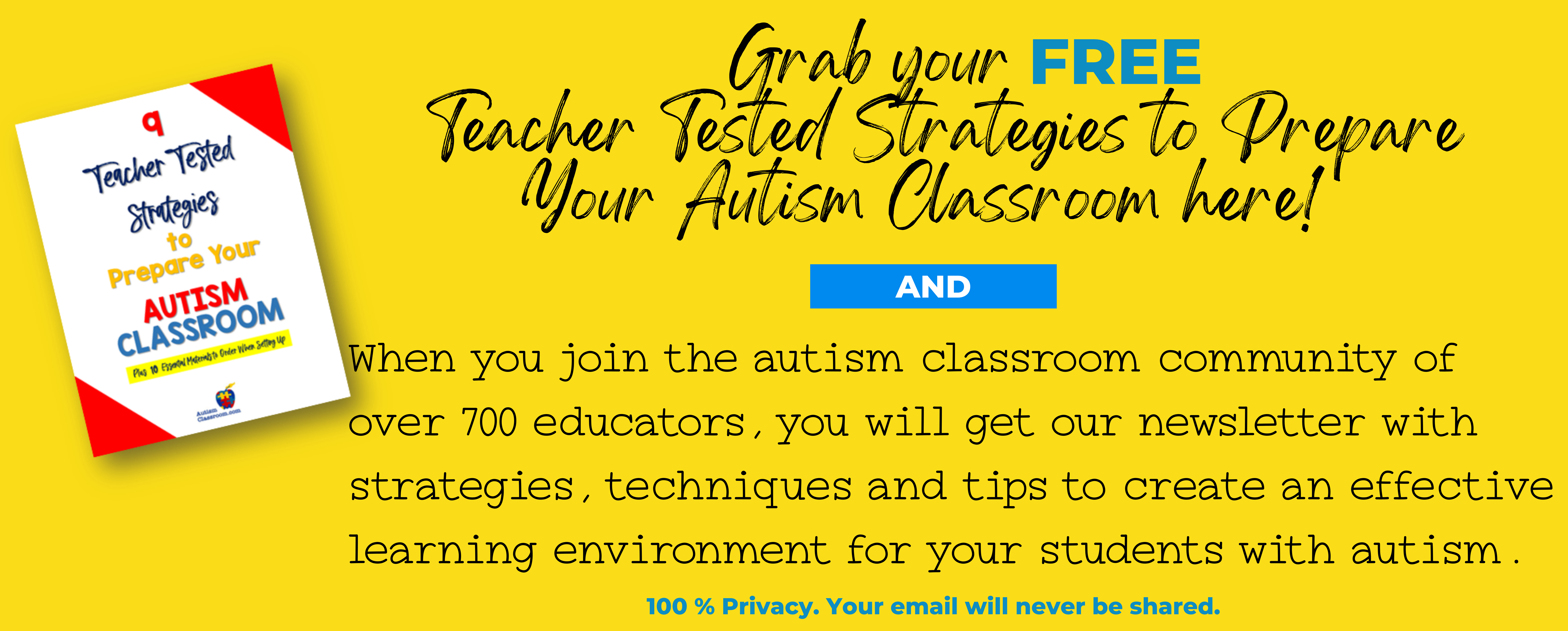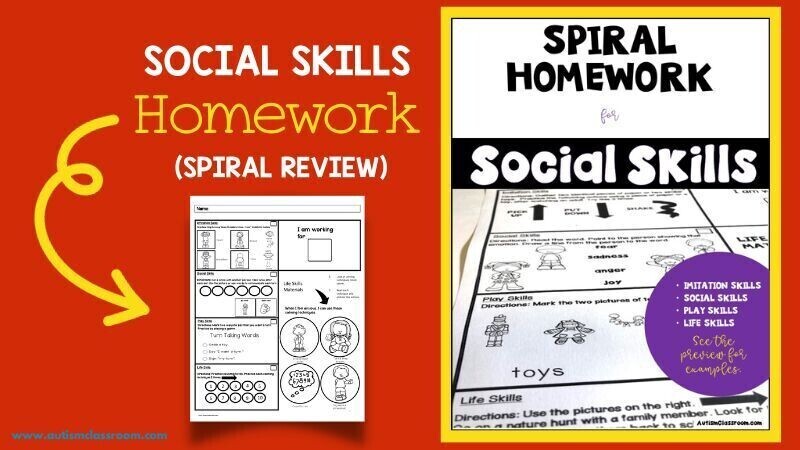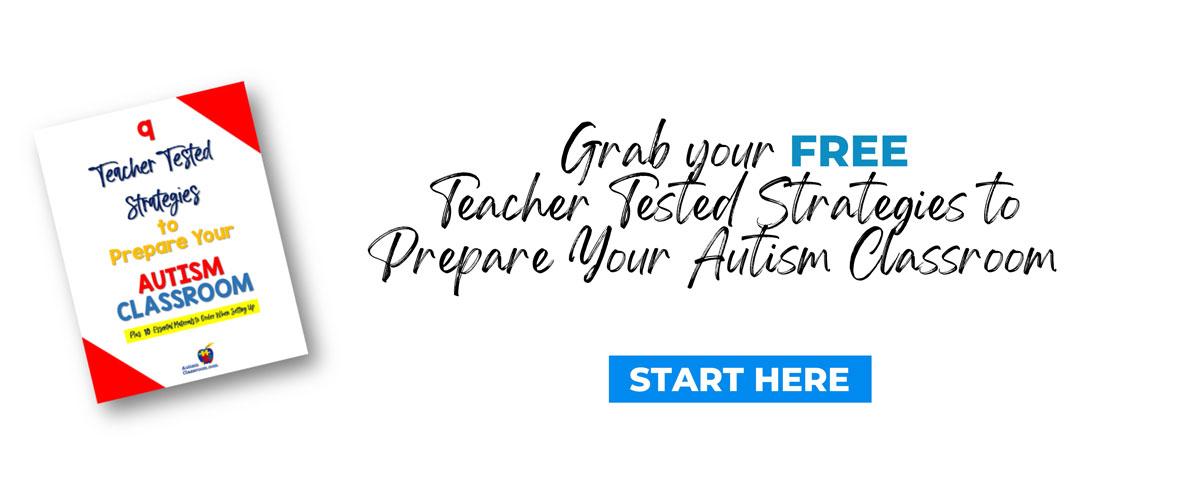As educators, we are constantly seeking effective resources to enhance the learning experience of our students, especially those with autism or developmental delays. One such resource that promises to make a significant impact is our Spiral Homework for Social Skills. This set of worksheets is designed to facilitate social skills development in an engaging and parent-friendly manner. Today we'll take a look at what this spiral homework has to offer.
What is Spiral Homework for Social Skills?
Spiral Homework for Social Skills consists of 30 pages of carefully crafted activities, meant to be distributed weekly. These one-page worksheets are tailored for students with significant delays, and are also suitable for younger students in primary grades who are learning to navigate social behaviors. They include play skills, imitation skills and daily living skills.
There are activities for the week on the page so you only have to send out 1 page per week.
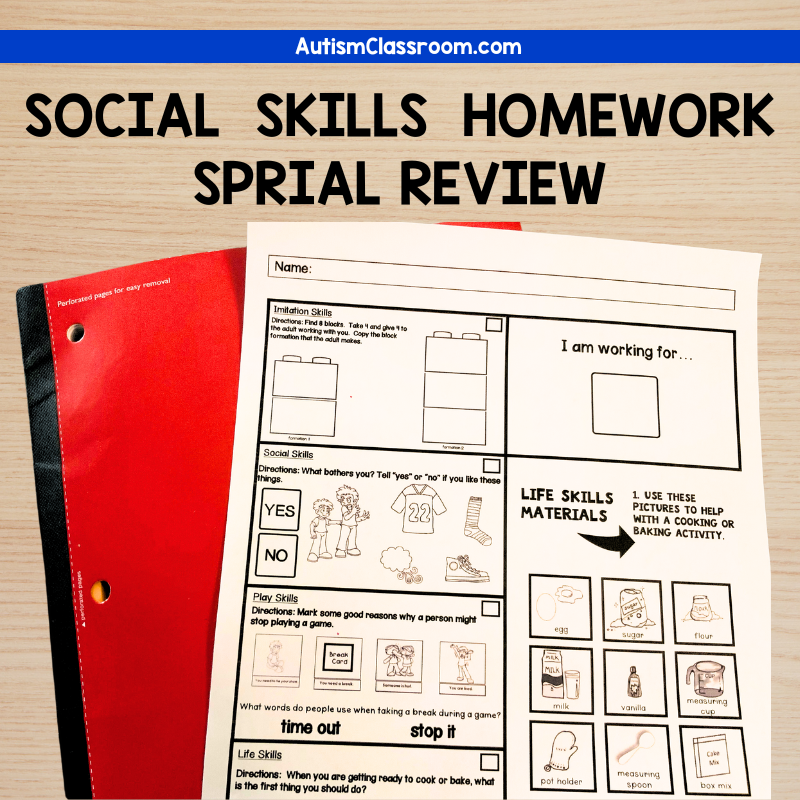
Features and Benefits
Year-Long Homework
The 30 pages can be used throughout the school year, by being given each week. This will provide parents with skills to work on with their children and will reinforce social skills. The packet includes a variety of activities, ranging from play skills to those requiring different response styles like matching, circling, and pointing. Print and you have engaging homework for the year!
Weekly Engagement
Each sheet includes quick, short activities. From Monday to Thursday, the sections focus on imitation skills, play skills, social skills and life skills. At the end of the week, there is an optional weekend activity that the family can complete. A perfect way to incorporate family involvement into your teaching practice.
Parental Involvement
There's a section on each page for family members to indicate rewards, or items the child can work towards for competing the tasks. Which we hope can increase interaction and student engagement. Just be sure to explain to the family to put a small picture of the items or toy their child will be working towards.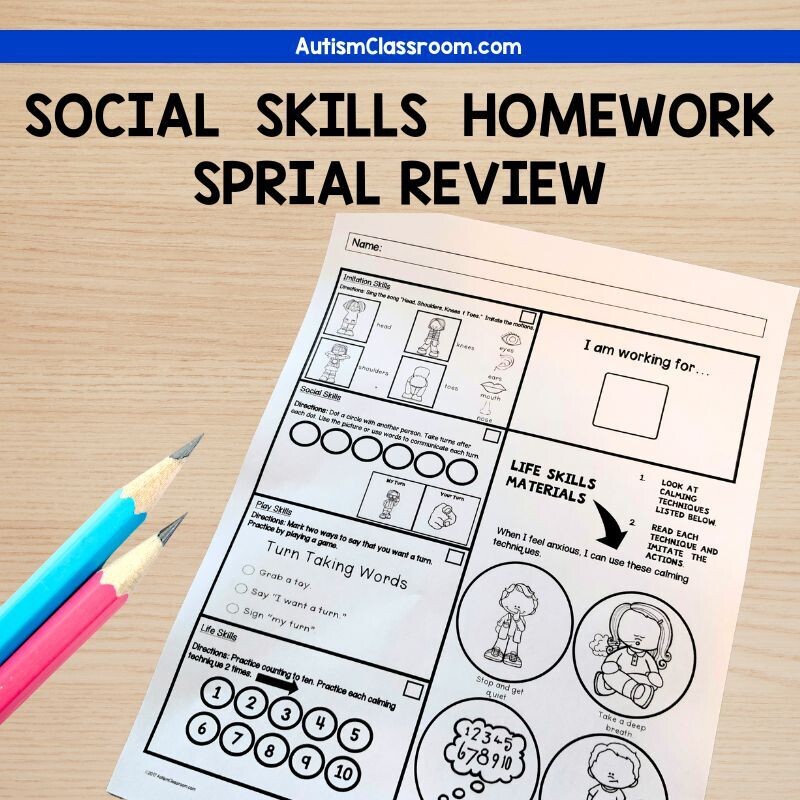
How Can These Worksheets Help?
Enhanced Language Skills
We know regular practice on communication can improve language skills in children. The activities are designed to encourage receptive and expressive language within a familiar environment.
Improved Play Skills
Many activities are easy and quick overviews of social or play activities. The aim is to help develop social cues in a fun and stress-free manner.
Encouraging Family Involvement
By involving parents in the learning process, these worksheets not only promote learning at home but also help parents who want to know what types of topics they can use to improve abilities in their child. Some parents say they do not want homework for their children, but that is not the case for most parents of students with special needs. Parents want meaningful work that they can use to help build their child’s skill level. This can be a part of that.
Reinforcement of Positive Behavior
The reward system integrated into the worksheets motivates children to complete tasks, reinforcing positive behavior and the concept of working towards a goal. Once an image is added, the student can see what they are working towards. However, you will need to provide the small image card based on the preferences of the child. 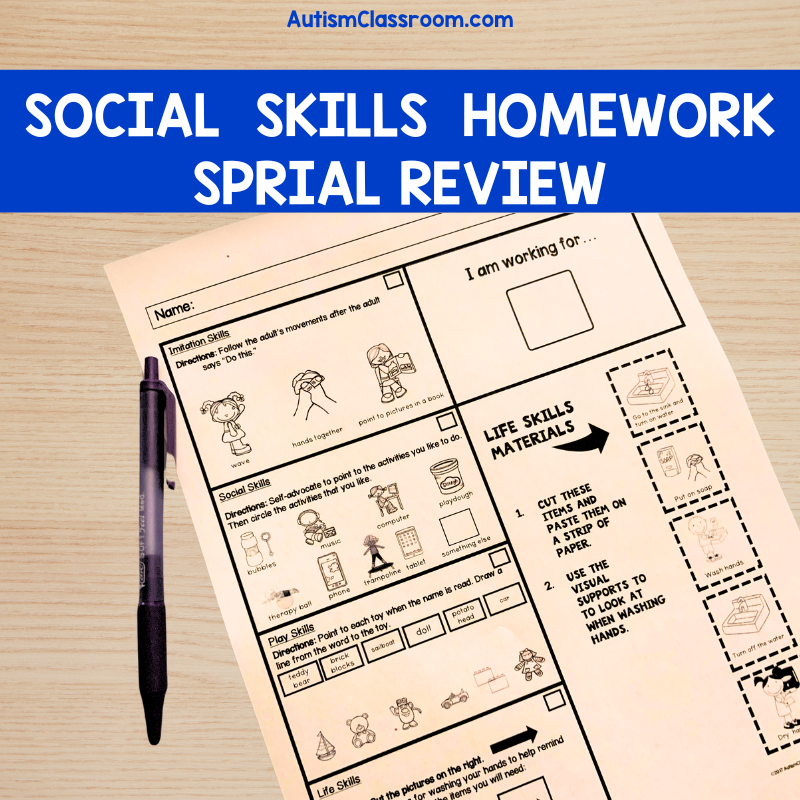
Spiral Homework for Social Skills is more than just a set of worksheets; it's a bridge connecting school learning with home environment, aiming to make social skills learning a continuous process. The skills are a reapeat of the social skills, play skills and imitation skills found in our skills printables. For students with autism and developmental delays, these activities help to include caregivers in the process of developing social skills. As teachers, incorporating these resources into our teaching plans and sub plans can significantly benefit our students. It can also benefit their families, creating more chances for families to learn what types of activities can help build skills in their child.
Remember, every small step in the right direction counts towards progress for students. Even if the progress is slow and steady, it is still progress.
Want more information related to social skills and autism classrooms?
Click the yellow box below for educator and parent tips.